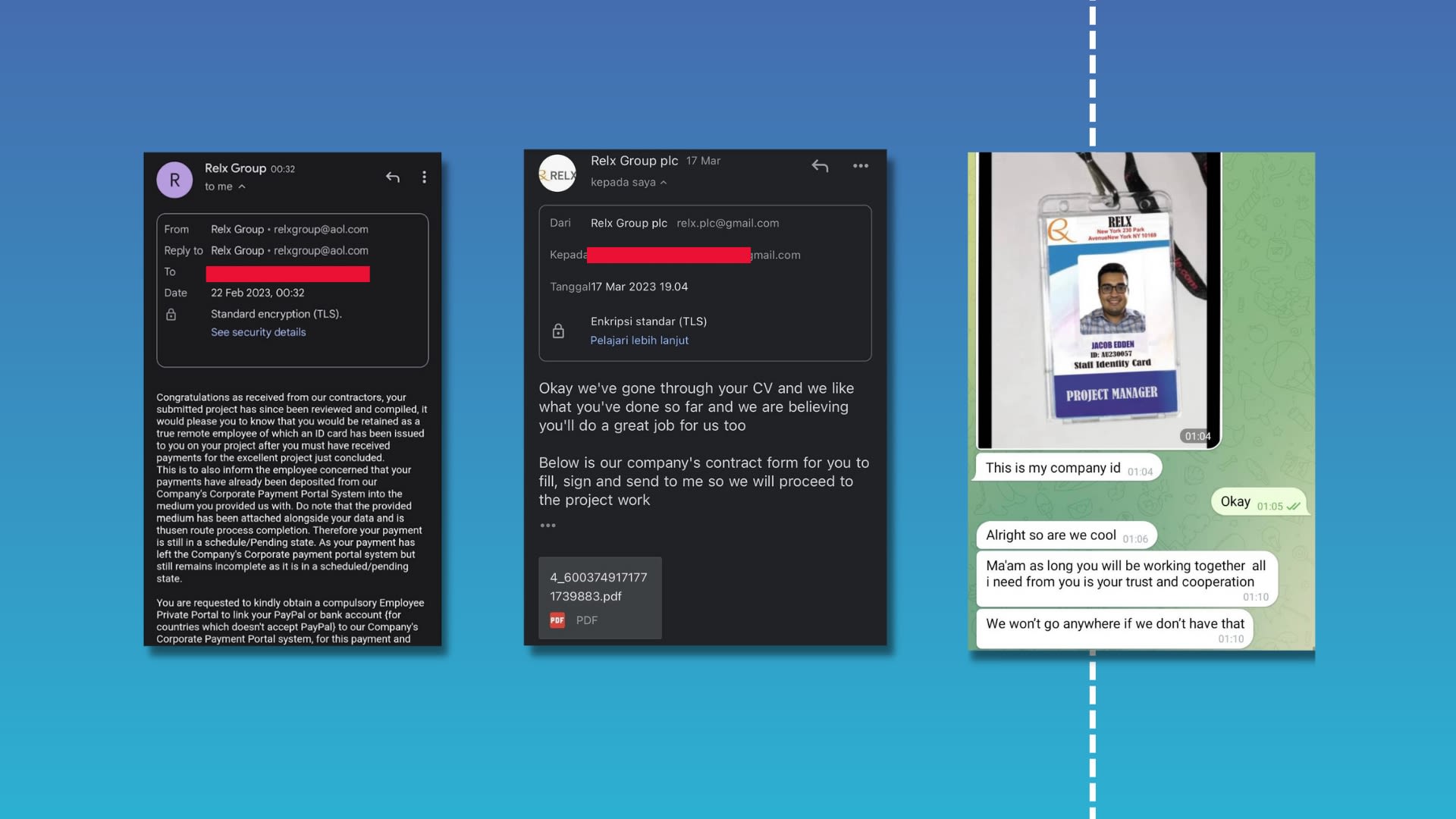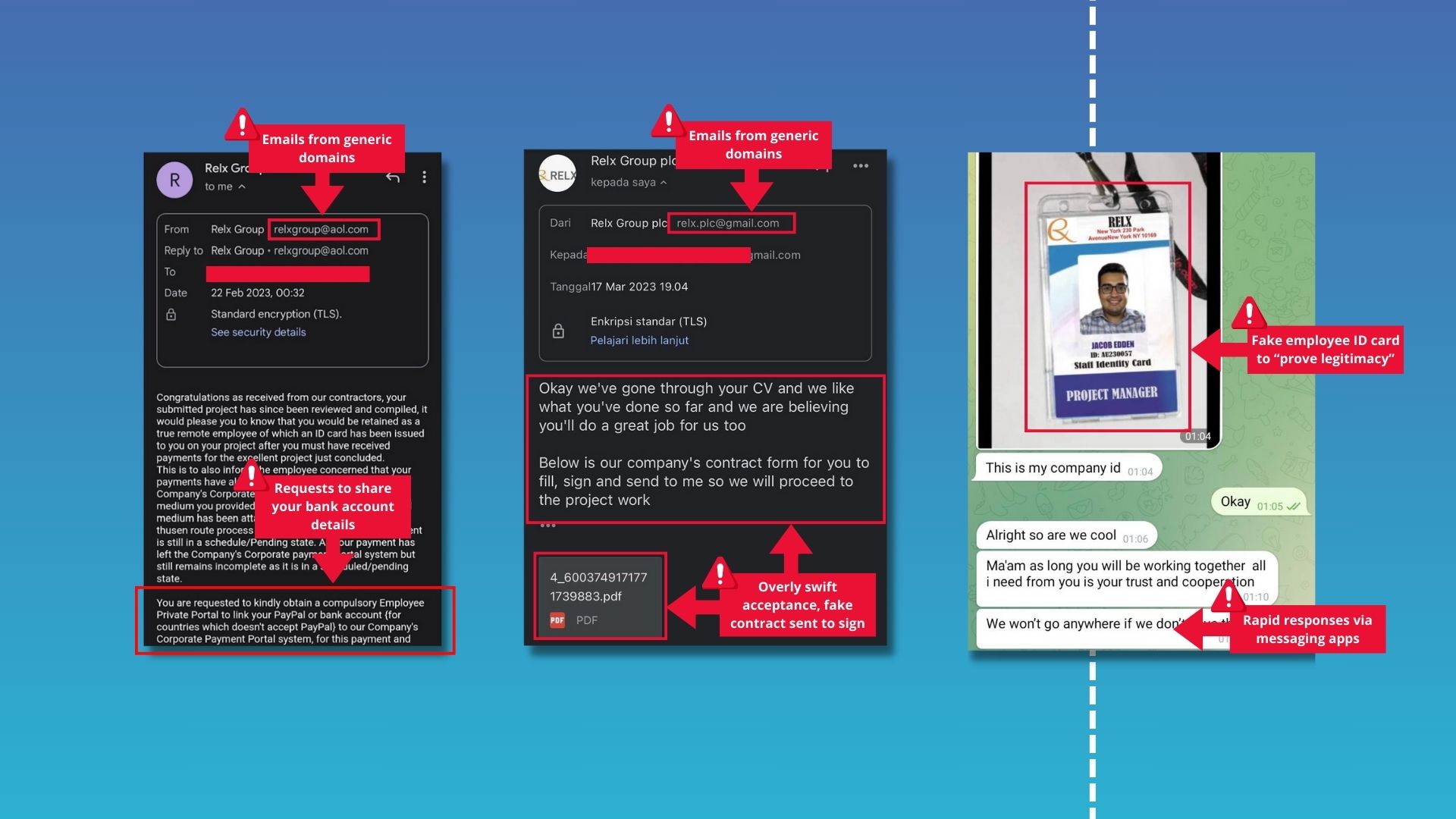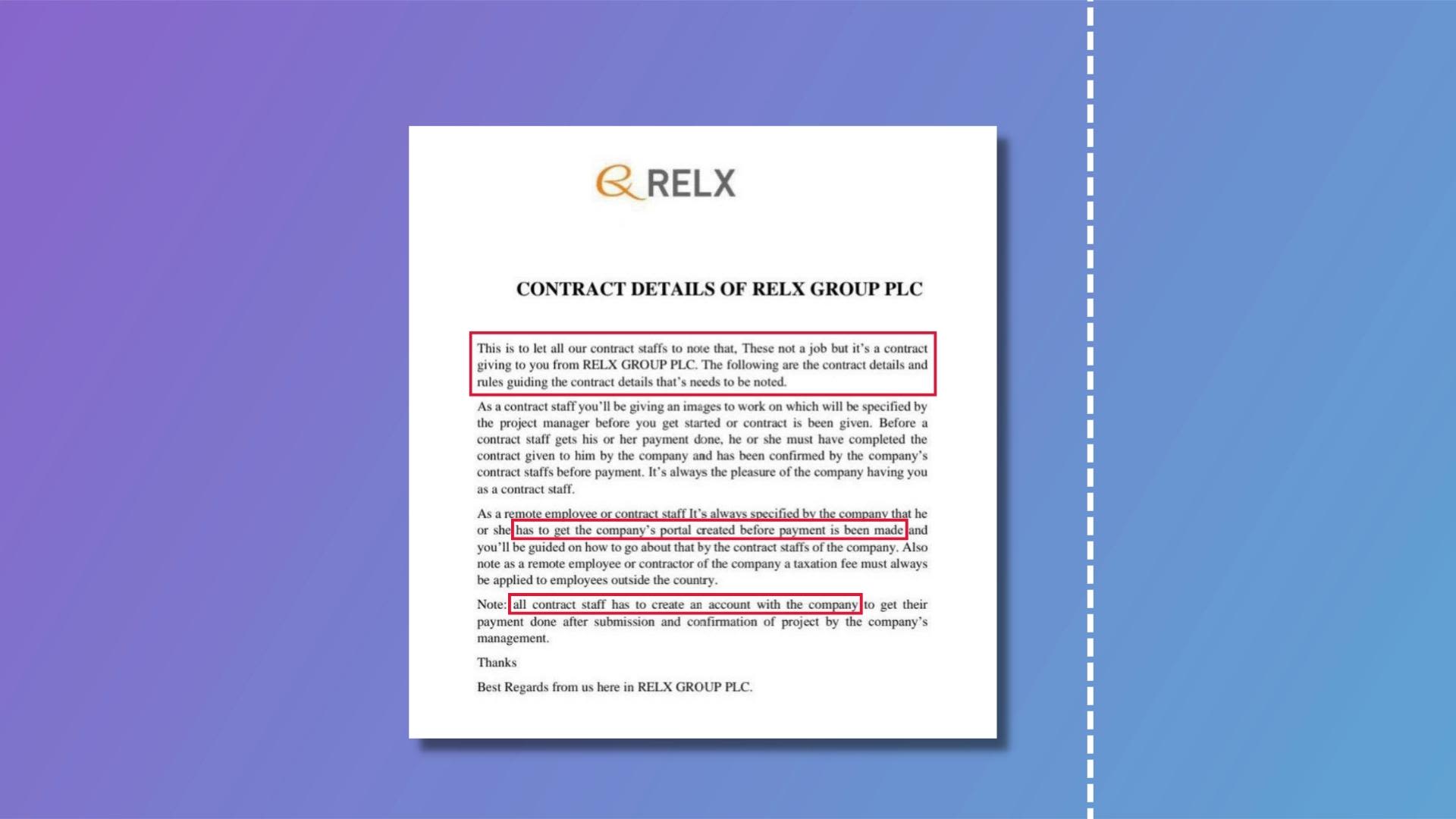Beware of Recruitment Scams Misusing LexisNexis Trusted Name
Learn How to Spot and Avoid Job Scams

LexisNexis Legal & Professional® provides legal, regulatory, and business information and analytics that help customers increase their productivity, improve decision-making, achieve better outcomes, and advance the rule of law around the world. As a digital pioneer, the company was the first to bring legal and business information online with its Lexis® and Nexis® services. LexisNexis Legal & Professional, which serves customers in more than 150 countries with 11,800 employees worldwide, is part of RELX, a global provider of information-based analytics and decision tools for professional and business customers.
Our commitment to excellence has made our brand a symbol of trust. Unfortunately, this has also attracted scammers who misuse our name for fraudulent recruitment schemes, exploiting unsuspecting job seekers, tricking them into giving away their personal information and money.
These fraudsters, often posing as recruiters or project managers our organization, operate across online platforms, including social media sites like LinkedIn, Facebook and Telegram, as well as popular freelance job platforms such as Upwork and Freelancer. They initiate contact through email, text messages, or direct messages on social media after discovering your resumé or expressing interest online. Their ultimate goal? Acquiring your sensitive information and financial resources.
Note: LexisNexis and RELX do not contact people through social media to extend job or contract offers, nor do we request money, credit card details or bank account information as part of any project or job application process. Any such request is fraudulent. While our information security team detects and removes fake LexisNexis and RELX accounts across the web, eliminating them all remains a challenge. To safeguard you against job scams, we've identified five tell-tale signs to look out for:

#1 Job postings not through our company website
- Opportunities not listed our Careers pages
The first sign that a job posting is fake is if it's not listed on the official company website or reputable job boards. Legitimate job opportunities at LexisNexis and Relx will be posted to LexisNexis.com/careers, Relx.com/careers Workday or recognised job boards such as LinkedIn, Indeed or Glassdoor. If you come across a job posting on social media that doesn't also appear on the company's official website, it's a scam.
- Offers that seem too good to be true
If a job offer seems too good to be true, it is. Scammers often entice victims with promises of high salaries, minimal effort, and unrealistic perks. Legitimate job opportunities are based on market standards and industry norms, exorbitant offers should raise suspicion.



#2 Communication through unofficial channels
Be wary of job-related communication that comes from personal email addresses or social media messaging apps. Signs of a scam include:
- Inconsistent domain names or generic email addresses
Scammers often use email addresses with inconsistent or unofficial domain names. Check for misspellings or variations of the company name or generic email domains like gmail.com, onmail.com or aol.com. Authentic communications will always originate from official email addresses, such as @relx.com, @lexisnexis.com or @reedelsevier.com. - Communicating through messaging apps
If you're asked to continue a job-related conversation through messaging apps like Facebook Messenger, WhatsApp or Telegram, do not proceed. Scammers often create fake profiles using recognisable company logos or ID badges to appear legitimate. Authentic RELX recruiters or project managers will not contact you through these channels. - Suspicious attachments or web links
Links or attachments provided in emails or chat messages should always be treated with caution. You may be taken to a malicious website, or have malware installed on your device without your knowledge.
Examples of job phishing emails and Telegram messages can be found below.



#3 Contracts with unusual requests and errors
After a scammer offers you a position or a freelance role within their "company", they will likely share a fake contract for you to sign to agree to their terms and conditions. Review these contracts carefully and note any requests for account creation, misspellings or grammatical errors. Typos and unusual requests in a legal contract are a clear sign of a scam.
Please see the example below of a fake RELX contract that was shared with victims through Telegram.

#4 Overly swift acceptance and a sense of urgency
Scammers are often in a hurry to get what they want. If you find that your work samples or submissions are accepted unusually quickly, it is most likely a scam. Legitimate employers take the time to review applicants thoroughly, evaluate their skills and qualifications and conduct interviews or assessments before making a decision. Be cautious if an employer seems too eager to hire you or accept your work without adequate evaluation.
A demand to rush things along, to keep a job offer confidential or a threat to cancel the employment offer are all key indications of a scam.

#5 Requests for personal information or payment
Perhaps the most telling sign of a job scam is a request for sensitive personal information, bank details or payment as a condition of employment. Legitimate employers do not ask for such information during the initial stages of the hiring process. NEVER create an account and connect your bank details or make any form of payment, as you could easily become a victim of identity theft.
If you have been coerced to send payment to a fraudster, contact your bank or credit card company immediately to report any unauthorized charges or transactions.
Stay vigilant and trust your instincts when evaluating job opportunities to protect yourself from potential scams. If you have suspicions regarding the authenticity of a job posting or communication allegedly from LexisNexis, RELX or our businesses, please contact us at security@relx.com with details of the suspicious job opportunity.
If you've fallen victim to a scammer, please report their profiles and contact your local law enforcement agency immediately.

